Introduce your students to the world of plants and pollination with a printable Pollinators Worksheet Pack.
Dive Into The World of Pollinators Worksheet Pack
Did you know that June is National Pollinators Month?! 🐝 🦋 Encourage your students to learn about the importance of pollinators with this reading passage! This resource includes an article, a comprehension sheet, cloze passage, and an answer sheet. A Google Slides version is available to download, as well!
What Are Pollinators? Reading Passages for Kids
This resource pack contains a handy trio of second grade reading passage worksheets about pollinators and their importance to the world. In this download you will find:
- What Are Pollinators? Reading Passages for Kids
- What Are Pollinators? Comprehension Test
- Pollinators Cloze Activity Sheet
Download Your Pollinator Reading Passage & Worksheets
This resource is available as an easy-to-use Google Slides or Printable PDF Resource file. To get your copy, click the dropdown arrow on the download button to select the file format you prefer.
This resource was created by Kaylyn Chupp, a teacher in Florida and Teach Starter Collaborator.
More Printable Worksheets About Bees and Other Pollinators
Looking for more ways to teach your students about pollinators? We’ve got loads of printable worksheets about bees and other pollinators. Make sure you check these out before you go!
[resource:3821258] [resource:5090491] [resource:74759]
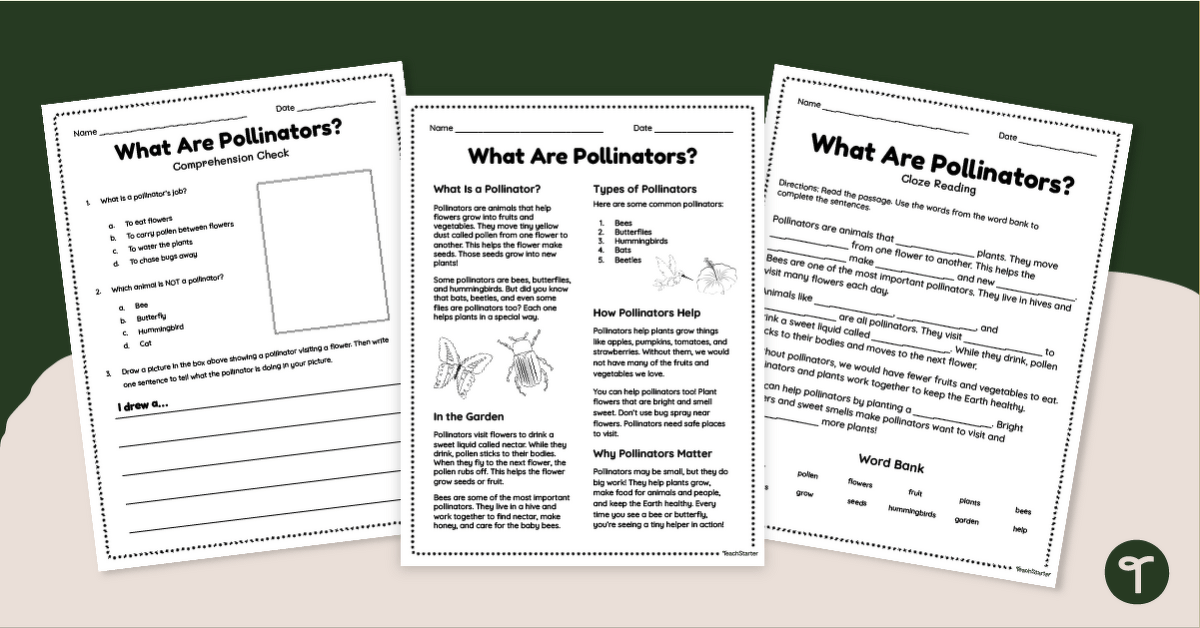
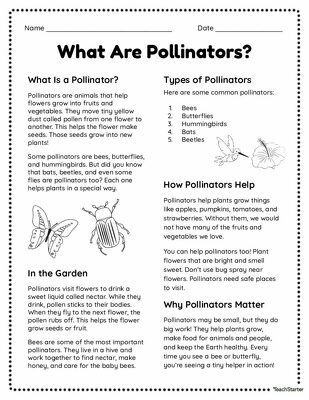

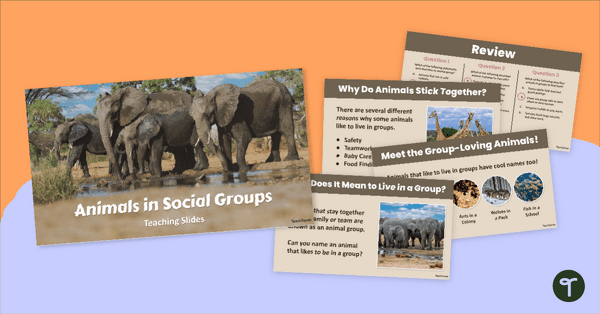
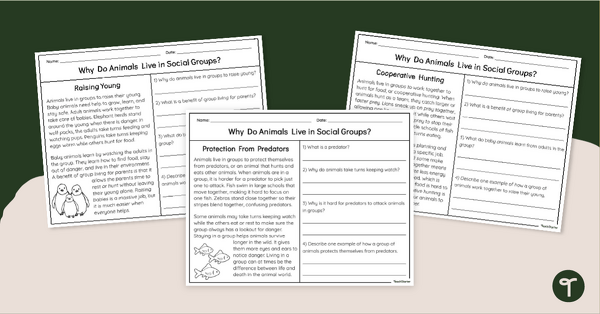
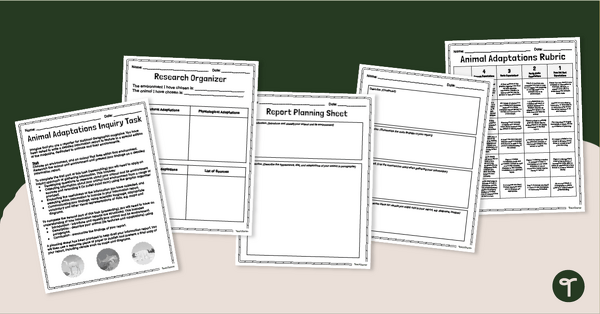
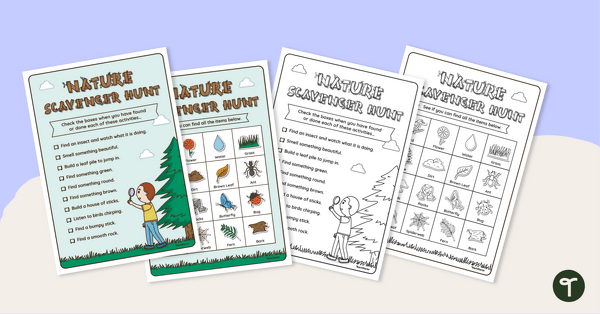
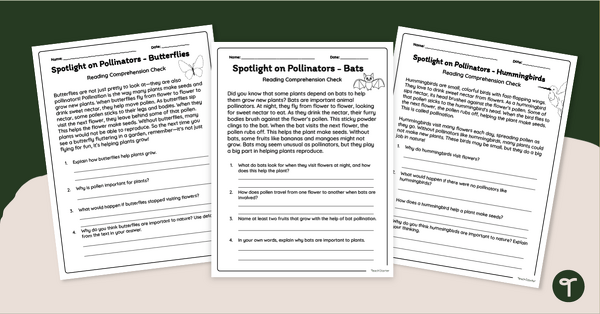
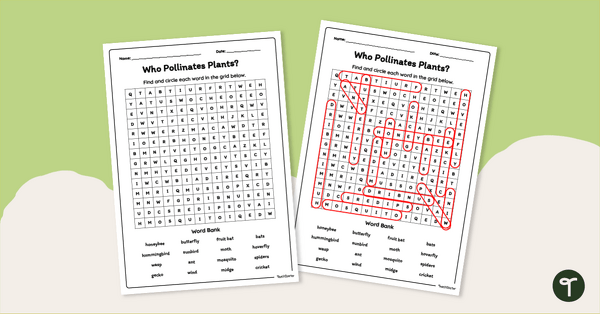
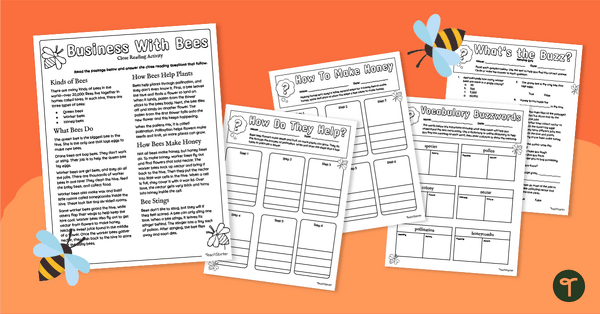
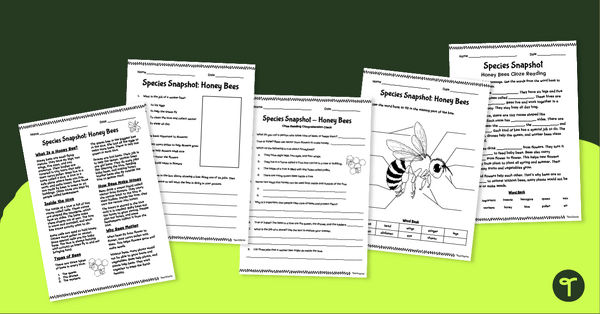
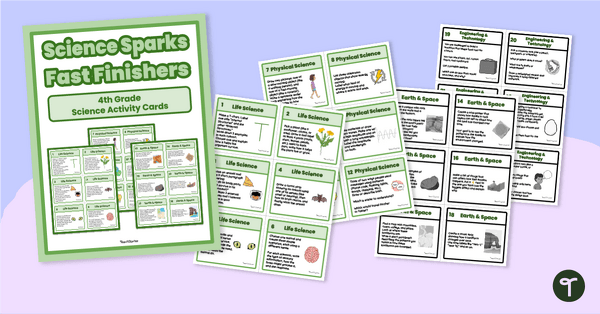
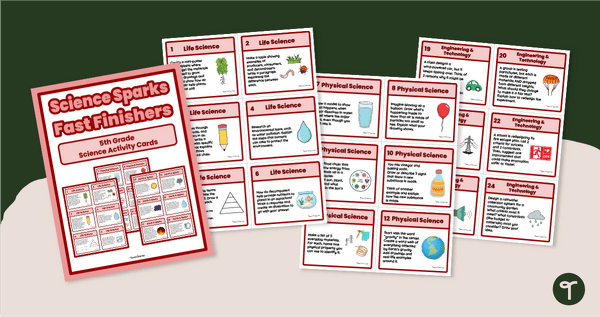
0 Comments
Write a review to help other teachers and parents like yourself. If you'd like to request a change to this resource, or report an error, select the corresponding tab above.